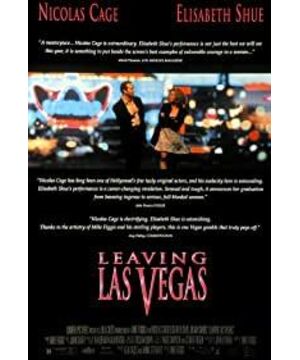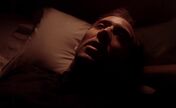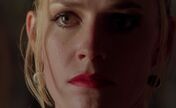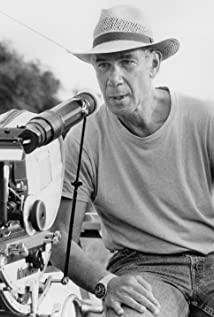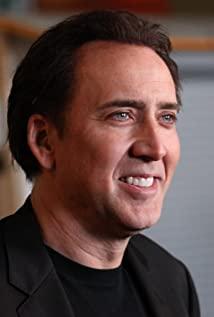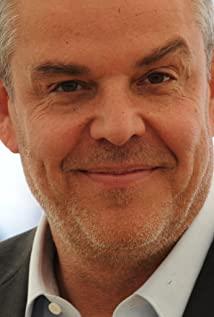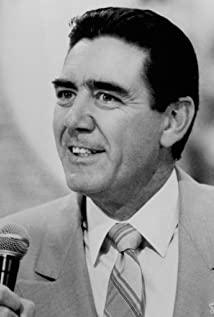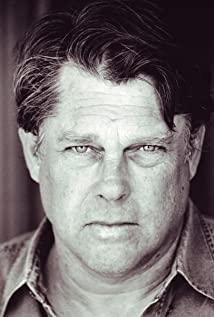Ben is a down-to-earth screenwriter, and his past success can still be vaguely seen in his beautiful office and BMW. But he's just an alcoholic now, an alcoholic who everyone hates and loses motivation. He himself said: I have forgotten that I lost them before I drank, or I drank before they left me. Sarah is a prostitute, a street warbler, $200 an hour. Her story doesn't even begin, except that she's from Los Angeles, just like Ben. Without absolute hardship, no one would choose this line of work. "Looking at how young and beautiful you are, what kind of man do you want?" the unwitting taxi driver told her.
A relationship just happened inadvertently, so it's not worth mentioning.
"For 500 bucks, you can do pretty much whatever you want. You can fuck my ass. You can come on my face. Whatever you want to do." When she said to Ben so easily, I just saw that she had Lonely tell people about what happened. Now that she's used to it, it's her service item. I watched the numbness and sinking of this soul. Ben didn't do anything, all he needed now was a pair of listening ears. At this moment, Sarah was moved. After that, we watched their mutual thoughts and pursuits in this city full of desires. Ben is in love with Sarah, but also tells her seriously, "You can't, never ask me to stop drinking." And he doesn't want to squeeze his twisted soul into her life. In the face of this wounded soul like herself, Sarah can understand Ben's heart, just like facing the pain in her heart, she even bought a small jug for Ben. But in her heart, she still hopes to save him, although she can't save herself. However, Ben is hopeless, or the purpose of his coming to Las Vegas is to drink to death, so even love only brings him a moment of happiness and sobriety. And with it comes a painful past. How can an alcoholic be sober and sober. Until Sarah saw him in bed with another prostitute and she shoved him out the door.
When they met again, Sarah was beaten by the vicious client, and what appeared in front of her was a wreck of Ben when he was dying.
Ben moved hard, trying to get himself excited, and his life seemed to be firming up under Sarah's hands. Sarah straddled it.
Make love, make love. This is the saddest move I've ever seen.
Two desperate souls do happy things with the help of the same mutilated body.
The last tremor is the climax and the end.
The early morning sun shines in through the gaps in the curtains, bright and warm.
Ben glanced at the sleeping man beside him, unable to shout. The empty eyes are lifeless.
To die means to leave everything that scares and grieves him.
he made it.
"We both know there's not much time left, and I don't want him to change. He needs me, and I love him -- I really love him," Sarah concluded. When a person's ideal is to fly in the air, why should he be trapped on the ground? Sarah has fulfilled the book and fulfilled herself. Redemption may be a two-way street.
The film ends with a shy smile.
...
the film has become a classic due to the great performance of Nicolas Cage (he won the Oscar for best actor for this film), and with the same excellent sound and picture, the film's melancholy and lonely temperament wanders like a troubadour In the world, no traces are left, if there is, it seems that there is no. British director Mike Fergus was originally a musician, and he wrote all the jazz-style soundtracks of the film himself, plus several blues songs by Sting and Don Henley, making music occupy an important position in the film.
At the beginning of the film, Ben was buying various alcohol in the supermarket. At this time, sting's "angle eyes" sounded, bringing people into that atmosphere. "Have you ever felt this way, abandoned by the world. . . . You look around every corner and wish she was there. You wish you were cool and pretend you didn't care." So, from the very beginning of the film, it uses music to grab people's hearts.
In the strip club, with the increasingly rapid drumbeat, the scene of Ben drinking and the dancer Miaoman alternately appeared. Until the end, there was no sound. On the screen, only Ben's wide eyes and wide mouth remain. Then there was a silent cry, pain sprayed from the screen, suffocating.
When Ben burned everything and was about to leave, the song was high-pitched and relaxed. The picture showed his desperate and lonely eyes and a row of black garbage bags neatly arranged on the street. All the past was abandoned by him, and he took his life to Las Vegas. After that, the song reappeared when he was drunk and recalled. At this time, in addition to the photos of his wife and son, the figure of Sarah appeared in his mind.
In the scene where the two of them were in the casino, the director used a bird's-eye view, watching how Ben lost control and started going crazy, shouting "I'm his father! I'm his father!". The lens trembled slightly, and the picture was split into two oblique pieces by the darkness, just like the spirit that was split by alcohol could not be recovered.
The most beautiful part of the film is the scene where the two of them are by the pool. In the dark blue swimming pool, to the music of "angle eyes", Ben was standing in the water drinking alone. Sarah jumped in, swam to his side, and kissed him. The deep blue here is no longer blue, but freedom. At this time, the two of them are just happy and free fish in the water.
On the shore, Sarah spilled the wine all over her body, and Ben sucked it greedily. There is a love for wine, a love for Sarah, a lingering desire for happiness. At this point, we heard Don Henley sing "Come rain or come shine": "I want to love you more than anyone. Rain or shine. As high as a mountain, as deep as a river. Happiness is in Together, unhappy together."
At the end of the film, the picture is dark, and the music is tense and protracted.
...
In the face of the abnormal human beings in the eyes of these two normal people, the director has been telling the story calmly. He did not accuse them, nor did he give us an answer and tell us how to do it. I believe that the director is not trying to preach, the purpose of his shooting may just be out of love for the story. Or, he also has a fragile and lonely heart.
This deeply melancholy film is based on John O'Brien's autobiographical novel of the same name. This guarantees the reality and authenticity of the film. John O'Brien committed suicide just two weeks after selling the film rights to the novel. Movies and reality are so entwined that no one can tell them apart.
View more about Leaving Las Vegas reviews


